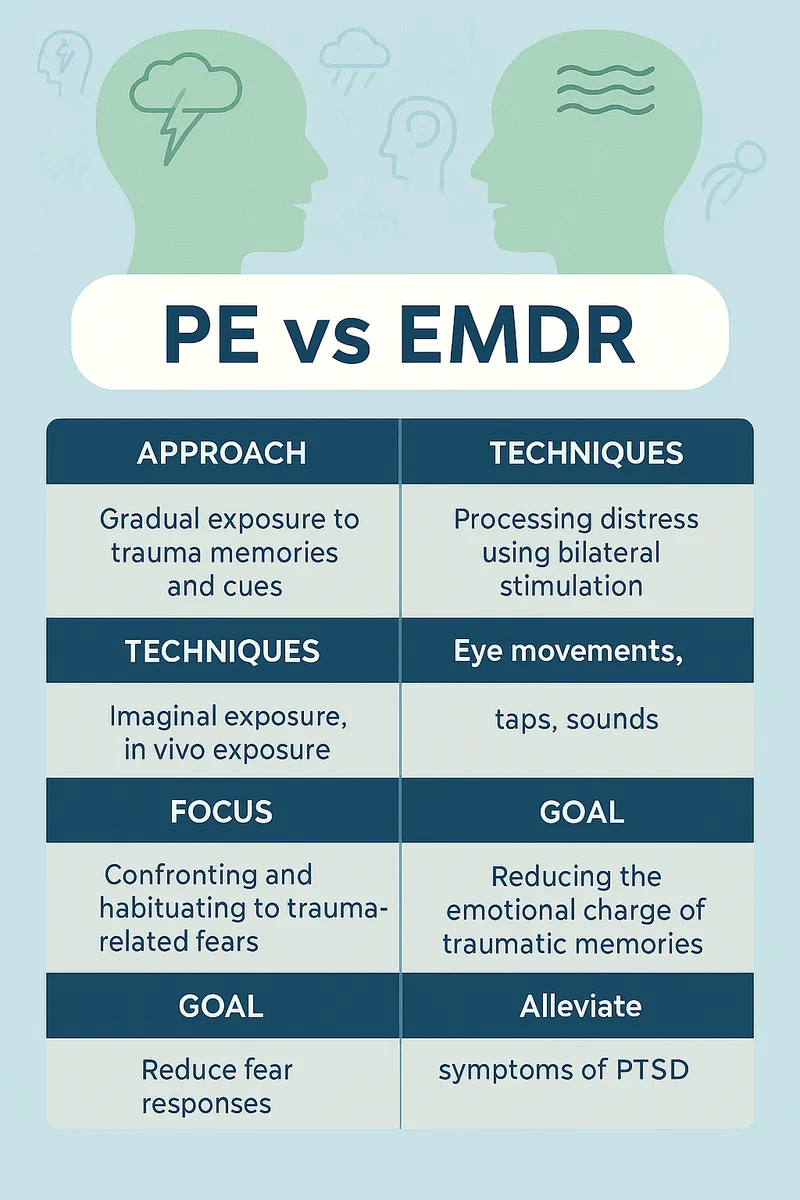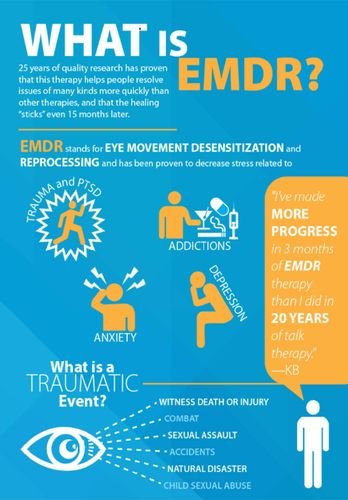Why emdr therapy new york delivers transformative mental health results
Wiki Article
How EMDR Treatment Functions: an In-depth Check Out the Refine and Its Performance
EMDR treatment has become a famous treatment for trauma-related problems. Its organized method includes numerous stages created to assist in the processing of distressing memories. Central to this approach is the idea of bilateral stimulation, which plays an important role in just how memories are processed. Understanding these components exposes much about the treatment's efficiency. What especially occurs throughout an EMDR session, and exactly how does it influence the restorative trip?Comprehending the Concepts of EMDR Treatment
EMDR therapy, or Eye Movement Desensitization and Reprocessing, operates the property that unresolved distressing experiences can impede psychological health. This ingenious healing method intends to help with the handling of distressing memories, permitting individuals to get a much healthier perspective on their past. Central to EMDR is the principle of reciprocal stimulation, typically accomplished via guided eye motions, which is thought to help integrate stressful memories into a much more flexible structure.
The 8 Phases of EMDR Therapy
The procedure of EMDR therapy unfolds over eight distinctive stages, each developed to guide customers with a structured approach to recovery injury. The very first phase involves history-taking, where the therapist evaluates the customer's history and identifies target memories. In the 2nd phase, clients find out relaxation techniques to take care of distress. The third stage concentrates on identifying adverse beliefs connected with the traumatic memory.The 4th phase is where the desensitization procedure begins, permitting customers to process the stressful memory. The fifth phase involves setting up favorable ideas to replace the negative ones. In the 6th phase, customers are directed to assess their physical and emotional actions to the processed memory. The seventh stage emphasizes closure, aiding clients go back to a state of equilibrium. Lastly, the 8th phase includes reevaluation, where specialists and clients evaluate progression and address any kind of recurring distress. This detailed method cultivates a path to healing and durability.
The Function of Reciprocal Excitement
Bilateral stimulation is an important element of EMDR treatment, facilitating the processing of distressing memories. This strategy involves alternating stimulation of both hemispheres of the brain, typically achieved with eye movements, acoustic tones, or tactile sensations. The objective of bilateral stimulation is to involve the brain's all-natural info handling system, which might come to be disrupted following trauma.By activating both sides of the brain, reciprocal stimulation helps clients access and reprocess upsetting memories in a much more adaptive method. This technique motivates the combination of distressing experiences, minimizing their psychological fee and making it possible for customers to establish brand-new viewpoints.

In addition, reciprocal stimulation may advertise leisure and minimize anxiety throughout sessions, developing a much safer atmosphere for Read Full Report clients to challenge excruciating memories. Inevitably, this technique improves the therapeutic procedure, enabling individuals to move towards recovery and resolution.
Evidence Sustaining the Performance of EMDR
Study has actually shown that EMDR therapy works in dealing with different psychological problems, especially post-traumatic tension disorder (PTSD) Many studies have actually demonstrated substantial decreases in PTSD symptoms complying with EMDR treatment. For example, a meta-analysis of randomized controlled tests found that EMDR was as reliable as cognitive behavioral treatment (CBT) for PTSD, with long lasting results observed even months after therapy. In addition, the American Psychological Association and the World Wellness Organization support EMDR as a recommended therapy for trauma-related disorders.Beyond PTSD, study indicates that EMDR can likewise profit individuals dealing here are the findings with anxiousness, depression, and fears. An expanding body of proof supports its use in varied populaces, including kids and experts - best emdr therapy in nyc. In general, the gathering research highlights EMDR's prospective as a functional therapeutic option, leading the way for further expedition into its devices and applications in psychological health and wellness therapy
What to Expect During an EMDR Session
During an EMDR session, clients can expect an organized yet adaptable strategy intended at handling traumatic memories. The therapist begins by establishing a safe environment, where clients can feel comfortable sharing their experiences. Initial discussions concentrate on determining certain memories and connected unfavorable beliefs.Clients are directed to focus on these memories while concurrently involving in reciprocal stimulation, normally via led eye activities or touching. This double focus aims to help with the processing of the injury, permitting customers to reframe their experiences and minimize emotional distress.
Throughout the session, therapists monitor clients' actions, changing the speed and strategy as required. Procedure may include relaxation methods or cognitive restructuring to strengthen positive beliefs. Overall, clients can expect a helpful environment that encourages self-exploration and recovery, eventually causing a higher feeling of psychological wellness.
Frequently Asked Inquiries
Is EMDR Therapy Suitable for Children or Adolescents?
EMDR therapy can be ideal for kids and adolescents, provided it is adjusted to their developing requirements (emdr therapy). Medical professionals commonly customize strategies to ensure safety and efficiency, supporting more youthful populaces in processing injury and emotional distressHow Much Time Does EMDR Treatment Usually Last?
EMDR therapy normally lasts between 8 to 12 sessions, with each session varying from 60 to 90 minutes. Individual requirements and the intricacy of injury can impact the total period of treatment.
Can EMDR Therapy Be Done Remotely or Online?
EMDR therapy can without a doubt be conducted remotely or online. Numerous professionals have actually adjusted their approaches to digital settings, permitting customers to participate in reliable sessions from the convenience of their homes, keeping healing advantages.What Are the Possible Negative Effects of EMDR?
Potential adverse effects of EMDR treatment anchor might consist of short-lived psychological distress, enhanced anxiousness, dazzling memories, and physical pain. People may additionally experience tiredness or migraines complying with sessions, as the mind processes intense feelings and memories.How Does EMDR Contrast to Typical Talk Treatment?

EMDR therapy, or Eye Movement Desensitization and Reprocessing, runs on the facility that unresolved stressful experiences can impede emotional health. The process of EMDR treatment unravels over eight distinctive phases, each made to assist clients via an organized approach to recovery trauma. Reciprocal stimulation is an important component of EMDR therapy, helping with the handling of distressing memories. During an EMDR session, clients can anticipate a structured yet adaptable method intended at processing stressful memories. Potential side results of EMDR therapy might consist of momentary emotional distress, increased anxiety, dazzling memories, and physical discomfort.
Report this wiki page